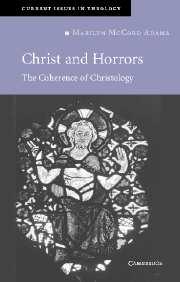The thesis of these lectures is that a Christology that is metaphysically high (in the direction of medieval interpretations of Chalcedon) but materially low to medium (in attributing to Christ a human nature much more like ours than patristic or medieval theology will allow) gives a Christian worldview its coherence and explanatory power.
Lecture 1: Christology as Natural Theology? Some Methodological Preliminaries
The first lecture rejects approaches that would marginalise or relativise Christology and lays out the methodological approach of this project, beginning with sceptical realism and discussing the relevance of Scripture, history and philosophy in Christian philosophical formulations.
Lecture 2: Roles and Explananda
Christ as Saviour is supposed to remedy our non-optimal human condition and non-optimal Divine-human relations. The second lecture subsumes this explanatory role under the rubric ‘defeater of horrendous evils’, and analyses what is involved in this task. It argues that this role description not only ‘fits’ with the saving roles ascribed to Christ by the New Testament and traditional theology, but also integrates them in a fruitful way.
Lecture 3: What Sort of Human Nature?
How much like ours was Christ’s human nature? Did Christ share our imperfections, or did he enjoy special privileges? The answer has to be triangulated from Scripture, tradition and the job description. Where patristic/scholastic portraits are drawn with a bias towards perfection, and turn-of-the-last-century British pictures aim for a historical human who would be credible as the subject of the New Testament career, the exigencies of horror set up a counter bias towards Incarnation into a human nature very much like ours.
Lecture 4: The Metaphysics of Christology
A God-man can play an explanatory role only if Incarnation is philosophically intelligible. This lecture reviews attempts by turn-of-the-last-century British theologians to substitute psychological for metaphysical categories in the formulation of Christology, and argues that they are highly problematic. While not just any metaphysical framework will be rich enough to accommodate traditional christological claims, a version of medieval metaphysics that distinguishes individual natures will do.



